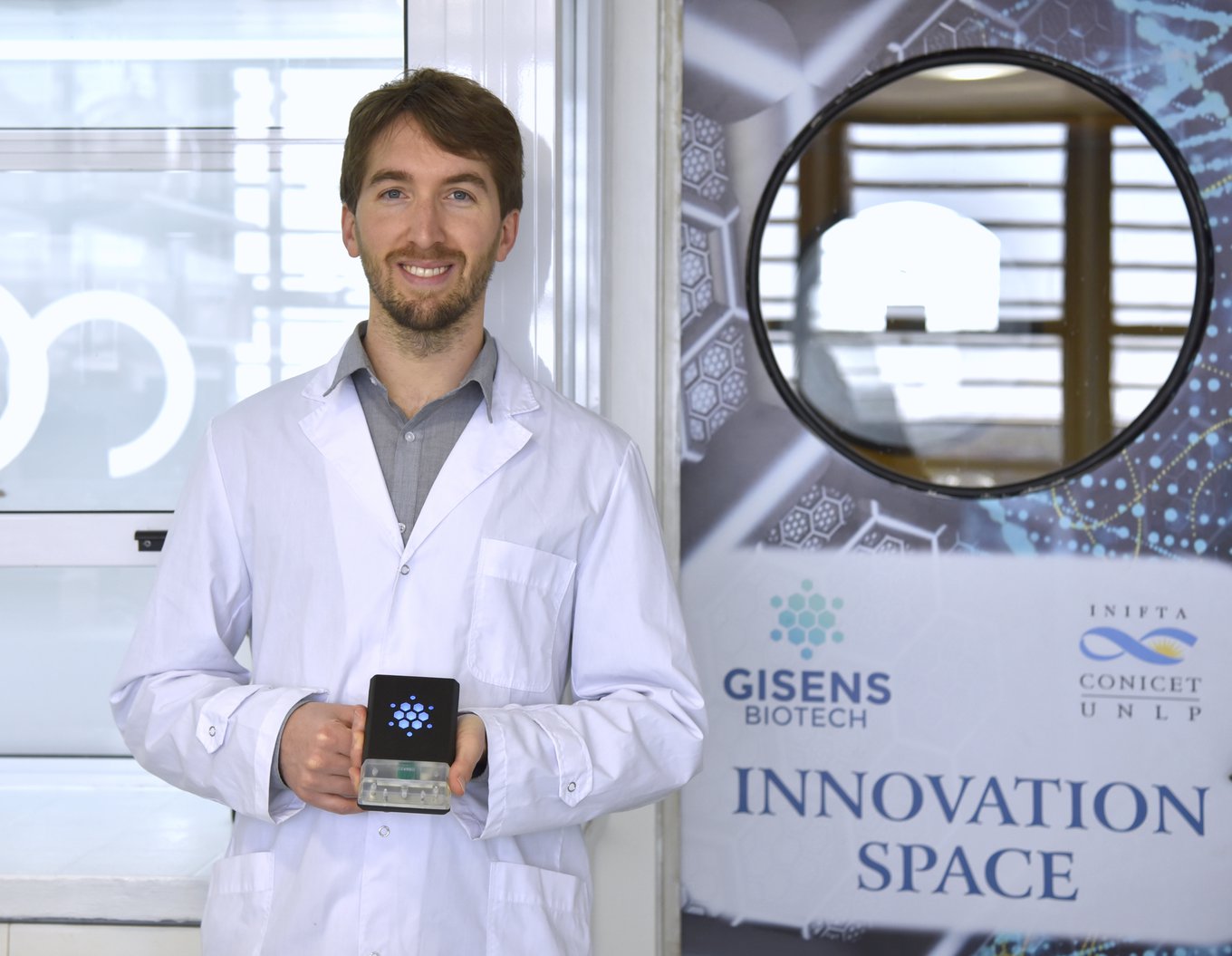Chronic kidney disease involves
a loss of kidney function over time. The consequences can be very serious by
impairing the removal of waste and water from the body. One in 10 people, some
850 million worldwide, suffer from this disease, which leads to expensive
chronic treatment, disability, and increased risk of death. It is the most
common kidney disease and many people do not know they have it. One way to
detect it and prevent its most serious consequences is to measure the markers
in the blood that warn of kidney failure.
To try to alleviate this problem, the young doctor in Chemistry and researcher at the National University of La Plata and CONICET, Esteban Piccinini, has launched the start-up Gisens Biotech. This biotech company manufactures eDiagnostics devices, portable, ultra-sensitive, easy-to-use diagnostic tools that can be read in real time. His technological breakthrough has made him one of the Innovators under 35 Latin America 2022 chosen by MIT Technology Review in Spanish.
Piccinini's innovation uses graphene microchips so that patients can measure their sodium, potassium, and urea levels by themselves at home. The patient receives the results instantly on their cell phone. These chemical markers determine the patient's renal status. With these sensors he manages to democratize the knowledge of our renal status. The young Argentinean's devices apply nanotechnology and biotechnology to monitor health. The creator details, "Early diagnosis and monitoring at home allows a change in medical treatment and quality of life. Our products help personalize treatments to improve people's health." Its proposal does not require qualified personnel for its use and saves travel and waiting times in laboratories and healthcare centers.
In addition, this start-up has also developed a bioelectronic test to diagnose COVID-19 reliably, quickly and from home. Its test detects coronavirus antigens even when the viral load is low, unlike equivalent products on the market. By improving the sensitivity of detection of viral disease, it can be treated earlier and its transmission reduced.
After validating these two products, Piccinini hopes to effectively detect more biochemical indicators and impact the lives of patients suffering from other pathologies. His first objective is to launch the devices in Argentina and the United States. The young man explains, "This disruptive technology has the potential to change the current diagnostic paradigm. We seek to empower people to make the diagnosis at home instead of resorting to large laboratories."




